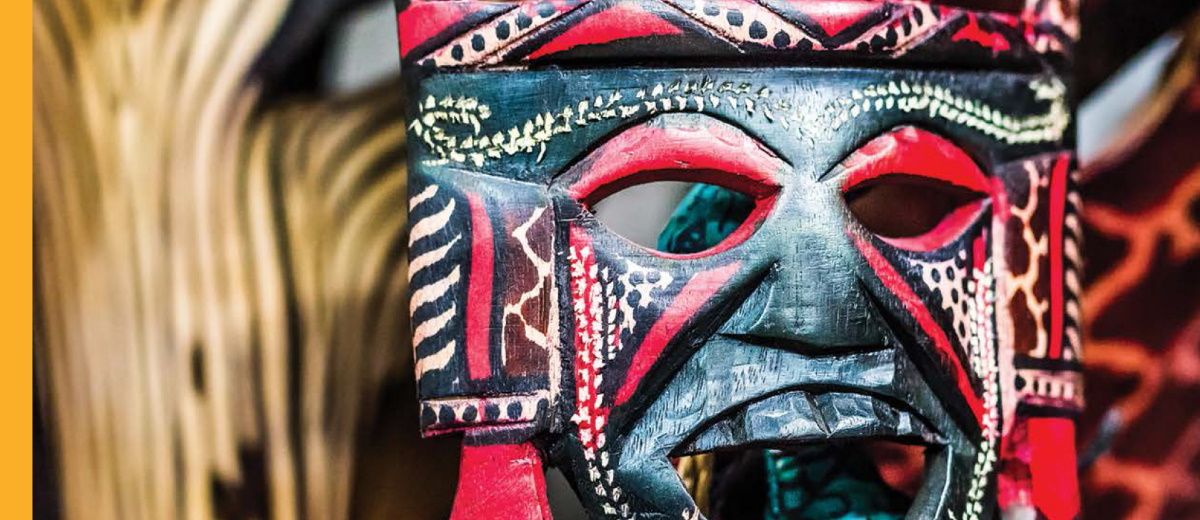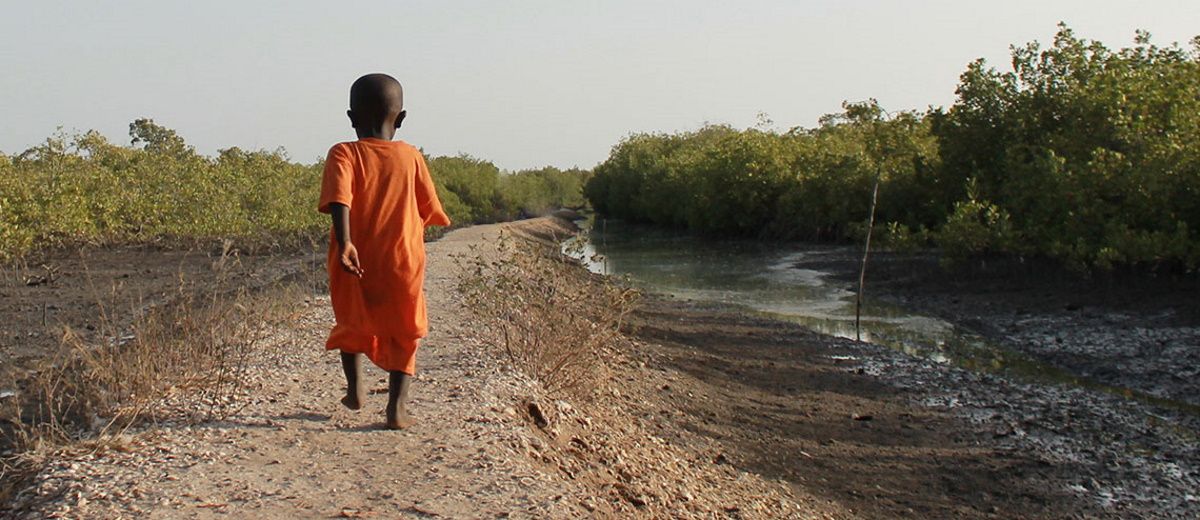Witchcraft: in Jesus Name

The sounds of the Liberian jungle penetrated our attempts to sleep in spite of our exhaustion. Night animals calling to each other brought imaginations of what kinds of critters might be lurking on the other side of the block walls now protecting us in the missionary’s house. The distant wail of a woman’s voice carried over the other jungle sounds throughout the night. The mournful, repetitious chanting seemed to pronounce an urgent warning of some kind. These wailing sounds were coming from the prophetess in the nearby village called Mission Town, one of three nearby villages inhabited by the Grebo people. She had declared that five pregnant women would die soon. Three had already died and a fourth woman was very ill and thus the wailing. Two days later she died leaving the question: who would be the next victim in the predictions of the prophetess?
Accompanying the missionary, we passed through Mission Town, abandoned houses, the church, which is still the center of “Christian” activities, and on to Big Town to pay our respects to the family. Houses were spaced around an open area where the woman’s body was framed in a bamboo rectangle and elevated on a pedestal for the mourning period. The houses in each village had white crosses painted on the doors. The missionary explained that the crosses had nothing to do with Calvary. When a soft whistle is heard, the Grebo believe that the “Bush Spirit” has entered the village. Fear causes them to drop what they are doing and run into the nearest house to hide behind the cross for protection.
Later, back in Mission Town, the church building bustled with activity in preparation for the memorial service for the fourth woman who had died. A long string of women, dressed in a variety of brightly tie-dyed wraps were dancing and singing in their native tongue to the beat of a typical African drum. They made their way through the crowd like a giant serpent, eventually coming to rest at the front of the church.
After many accolades for the deceased, the preacher began, in broken English, to proclaim the worthiness of the woman to enter heaven. “We know that she is in heaven because of the work she has done.” Attempting to sound out each word, he read from his English Bible to affirm his declaration but made no mention of the death, burial, and resurrection of our Lord as the reason for acceptance into the presence of a Holy God. The prophetess then mixed thoughts from hearing Bible teaching with her own animistic incantations to the spirits and ended her prayer in Jesus name.
The missionary explained that they had been invited to work with the Grebo by some of the tribal leaders who desired that the Word of God be translated into their language. Bible translation requires communicating God’s message of Himself to people in a way that they can understand His meaning. This requires learning the culture of a people, that is, the inner core of why they do what they do, in order to understand their language. If a missionary does not know the culture, he does not know what the words he has learned convey to the recipient of his translation.
Many years ago, missionaries, untrained for the challenge of learning the local dialects, often thought the African languages impossible to learn. Grebo, like many other West African languages, has a unique step tone system in which inflection can change the meaning of a word in its sentence, an unfamiliar concept to most English speakers. In order to communicate with the Grebo people, missionaries established learning centers; inviting the people to come and learn English, and to be taught the Bible. Mission Town was established when missionaries secured a plot of land near Big Town and Small Town, in the heart of the Grebo peoples. They built a fine cement block church building, complete with a steeple. People were enticed to move to Mission Town by offering them a house of their own, if they would come and live and learn. Many responded for a time, but eventually faded back in to Big Town and its traditional animistic life.
Syncretism is the mixing of newly learned concepts with the traditional beliefs of their ancestors, creating a third set of beliefs. Small Town was the heart of the animistic traditions of manipulating the unseen spirits that control life and the quality of life. The Small Town leaders refused to be a part of these new ways and kept intact the purity of their traditions, controlling the people through fear. Outsiders were not allowed to visit this village. The people from Big Town and Mission Town added some “Christian” beliefs (as they understood them) to their old ways. Syncretism was the obvious result among the Grebo people.
As we worked and traveled in Liberia, Ivory Coast, Burkina Faso, and Senegal in West Africa for the next several weeks, we recognized patterns of syncretism in many places. Frequently there were abandoned church buildings, symbols that suggested Christian influences, and rituals that had striking resemblance to practices observed in other tribal locations we had visited.
Under pressure to report results, missionaries often feel they do not have the time to learn a language and do culture study at a level necessary to produce a translation that will speak to the heart of a people. Even if the missionary has training in skills for language and culture acquisition, he seldom takes the time to do so. English or some other “trade” language is used, leaving the missionary to guess what the native speakers understand and are conveying to others.
I believe the following considerations are essential in order to reach Africa in our generation.
- The missionary must have a solid biblical world view. (According to researcher George Barna, 90% of proclaimed evangelicals in the USA do not.)
- The world view of the target peoples must be understood. This comes only by immersion of the missionary into the language and culture of his people. (Most have little understanding of the animistic beliefs, so typical in the religions of the people around them in the city or the bush.)
- The missionary and his sending church must be willing to allow the amount of time and training necessary to learn to clearly communicate biblical truth in the understanding of the people. The missionary who does not learn the language and culture will be the last to know that he may have caused a church to be born that mixes Christian truths with witchcraft.
- The Bible, the story of God, must be translated into the language of the people in order for church leaders to read and understand it for themselves in further church planting efforts. The national church must be self governing, self supporting and self propagating, thereby functioning and reproducing in its own cultural context, under the direction of the Holy Spirit.
- When missionaries are not properly prepared to clearly present the gospel by understanding the language and culture of the people the result will be syncretism; a mixing of Christianity with their animistic beliefs, as we witnessed among the Grebo. The result will be Witchcraft in Jesus Name






